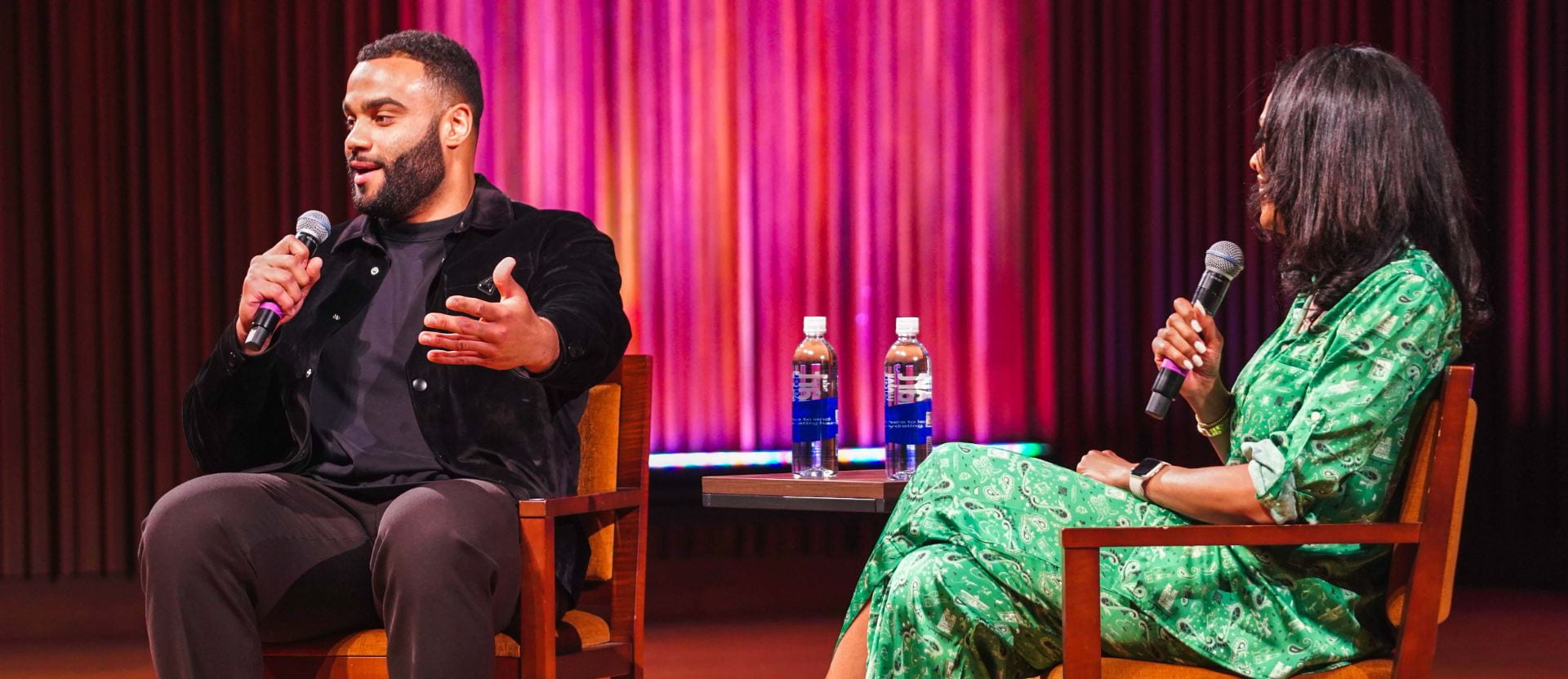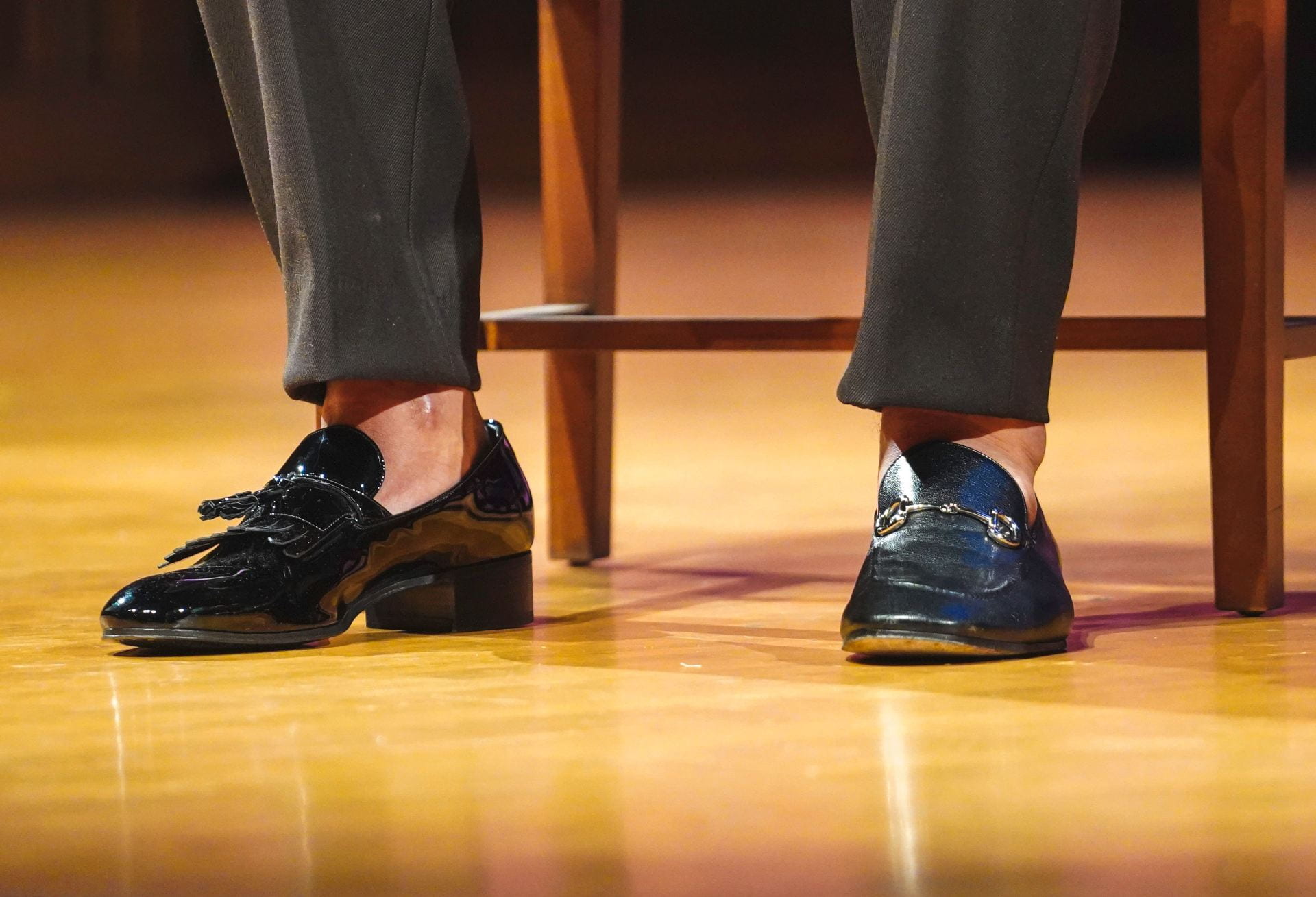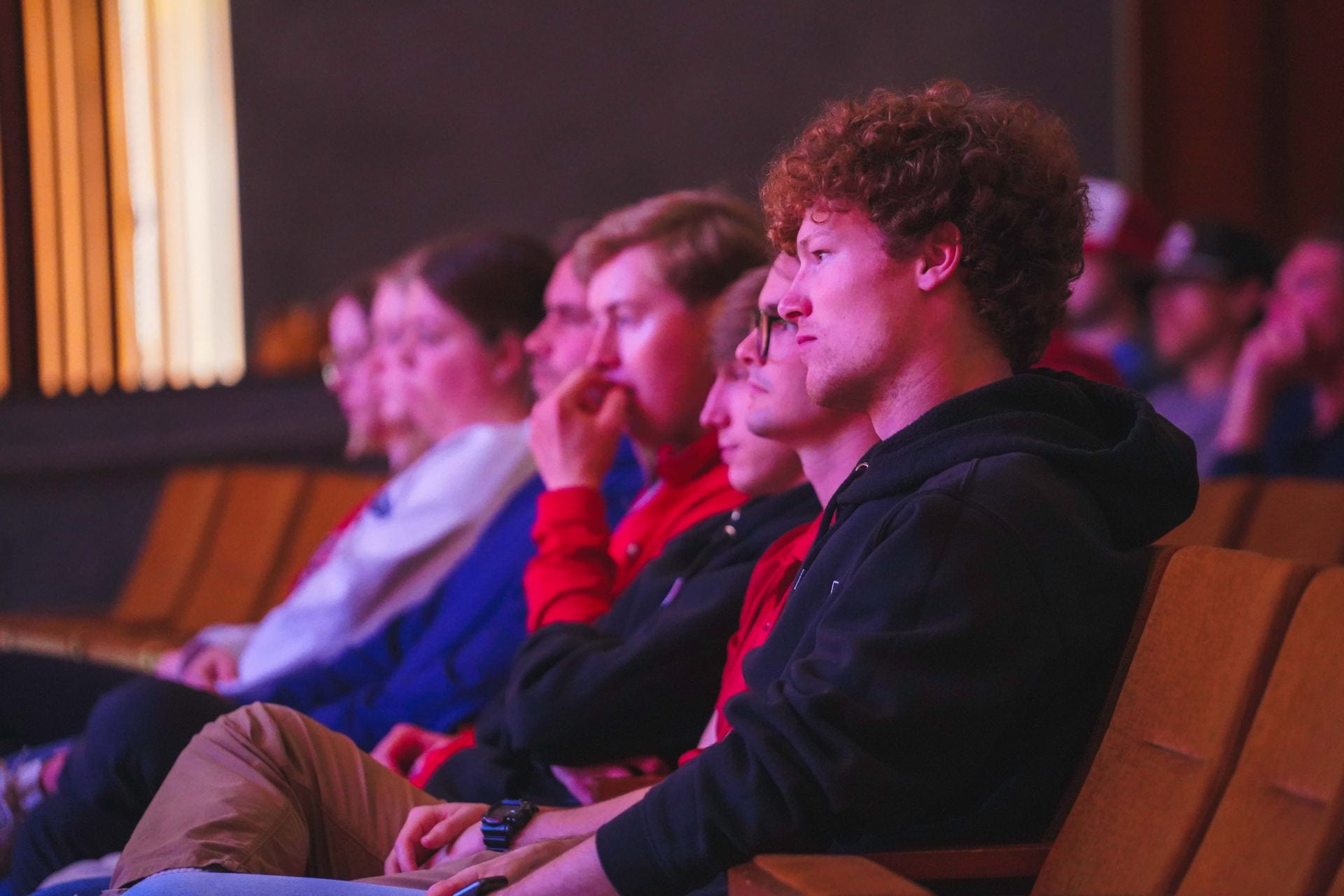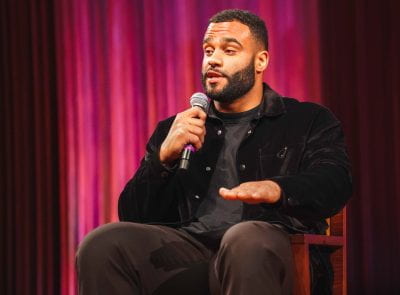
Performance art is defined as a time-based art form that typically features a live presentation to an audience or to onlookers.
In a space typically reserved for musical concerts and theatrical performances, the Faulkner Performance Arts Center is not where one might expect to find NFL Defensive Tackle, Solomon Thomas. His “normal” normal stage is in a giant stadium filled with the explosive sound of thousands of cheering fans. Yet Thomas still seemed to be right at home in a more delicate setting.
 On April 5th, 2023, the NFL superstar found himself at the University of Arkansas alongside Danyelle Musselman discussing something that just might be more important to him than his own football career – mental health and suicide prevention.
On April 5th, 2023, the NFL superstar found himself at the University of Arkansas alongside Danyelle Musselman discussing something that just might be more important to him than his own football career – mental health and suicide prevention.
As a coach’s wife, Musselman is no stranger to the struggles athletes go through, mostly alone, on a daily basis. The pair’s common knowledge of the subject resulted in a Q&A session that sought to normalize a subject that, in today’s world, should not remain so taboo.
Thomas opened the lecture by asking the audience about his “fit” – the way he was dressed. The crowd responded with compliments and cheers. However, what they didn’t notice were his shoes.
Thomas paused to gather his emotions before he looked down to point out he was wearing two different shoes. He explained that “in life, someone can look fitted and happy, but you just don’t know what they are going through.”


The idea that how we look on the outside isn’t always how we feel on the outside was not a planned demonstration but an actual example of distress. Thomas explained that it was an emotional experience to return to Arkansas, to the campus where his late sister attended college. The sister that would be the catalyst for his passion project, The Defensive Line, a foundation that is dedicated to end the epidemic of youth suicide, especially for young people of color, by transforming the way we communicate and connect about mental health.
As a number 3 draft pick from one of the leading football programs in the country, there were high expectations for a player like Thomas. When he lost his sister to suicide in 2018, Thomas tried to live up to these expectations and to suppress the emotions and feelings and to live with a “be a man” attitude.
All this did was cause him to “rumble inside, have dark suicidal thoughts,” and make him feel like he “didn’t want to wake up.”
It was only when someone asked him if he needed help that he found therapy. It was there that he was able to learn how to cope and to properly grieve for his sister, Ella.
He shared his views on the power of vulnerability and expressed his belief that everyone is going through something.
 “I am advocate for therapy- it saved my life and I truly mean that,” said Thomas, “it taught me how do deal with the ups and downs, not just in bad times but in the good times as well – it’s a true safe place.”
“I am advocate for therapy- it saved my life and I truly mean that,” said Thomas, “it taught me how do deal with the ups and downs, not just in bad times but in the good times as well – it’s a true safe place.”
Through therapy he learned not only that, but also how to find his identity and how to love himself.
“In a gladiator sport, guys still have to live in that stigma. No one talks about mental health in a locker room,” he said, “We aren’t taught how to deal with our internal struggles but big names in the sport are working to change that now.”
Through his foundation work he is “trying to make the human experience more human.”
“You might have an adversary or have someone die but it doesn’t mean the journey is over,” he said. “See the beauty in the struggle and the beauty in the pain.”
Thomas’ foundation The Defensive Line focuses on advocacy through storytelling, “everyone’s mental health, pain, grief and anxieties are so different – through storytelling we get to hear the human experience on how people made it through their struggles.”
The bulk of the organization’s work is suicide prevention workshops – teaching teachers and coaches how to create safe spaces in their classrooms, offices and locker rooms.”
Thomas expressed his gratitude to the Arkansas students for coming and listening to his story about becoming a better, healthier person.
Before taking questions from the audience, he ended his discussion with a message – “In the storm you might be going through, through the rain pounding down, understand there is some light.”
